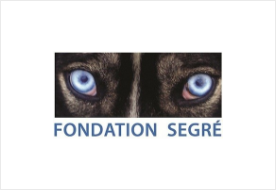Red Panda Network (RPN) collaborates with local governments to pursue in-depth research on red pandas in the wild. Our research provides important information on habitat quality, deforestation, and climate change throughout Nepal's red panda range.
Our research is then used to inform policy decisions surrounding environmental protection and sustainability plans.
The local community in Nepal is our strongest ally in red panda research and conservation. In 2007, RPN created Project Punde Kund; the world’s first community-based red panda population monitoring program. We worked closely with the Government of Nepal's Ministry of Forests and Soil Conservation to develop the world's first protocol for community-based red panda field survey and monitoring.
This program was started with sixteen Forest Guardians; now this national team of over 100 people is Nepal’s largest group of citizen scientists. Their work allows RPN and the Nepal government to make informed decisions on conservation tactics and land policy.
Our Forest Guardians are the heart of our community-based initiatives. They monitor and patrol red panda habitat in order to report population and habitat information to our biologists and field staff. The goal of this monitoring program is to gain insight into the status of the red panda and how its population is changing over time under the pressure of anthropogenic activities. The result is baseline data that allows us to implement science-based conservation programs and evaluate the effectiveness of our programs.
Our community-based approach promotes red panda stewardship. The Forest Guardian program has resulted in 150 people from disadvantaged, rural communities trained in wildlife monitoring and conservation techniques.
Our team is always putting out up-to-date research in peer-reviewed journals. Check out our research catalogue to learn more about our ongoing research projects, or to cite us in your own scholarly work.
RPN works to build relationships with government officials, educate them on environmental issues, and partner with them to advocate for the protection of red pandas and their habitat.
Engaging local policymakers in conservation activities helps to ensure the success and sustainability of programs. RPN achieves this through workshops where government officials are educated on the threats to red pandas in their district and discuss community-based solutions, as well as opportunities for collaboration.
In Nepal, the red panda is a protected species, but their numbers are dwindling as poaching and illegal trade of red pandas is on the rise. The Wildlife Crime Control Bureau of Nepal states that 90% of the nation's cases related to wildlife crime goes unreported.
But, Red Panda Network is fighting back. We are building anti-poaching networks—made up of local stakeholders including Forest Guardians—who patrol red panda habitat, remove traps and snares, educate locals on the importance of red panda conservation, and report poaching activity to enforcement agencies.
We also have three anti-poaching networks in western Nepal, as well as nine anti-poaching networks in the PIT corridor of eastern Nepal where we have witnessed a 60% decrease in trap and snare presence.



